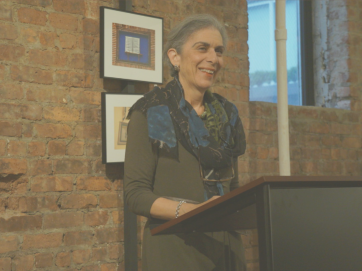The New York Times invited my colleague Rachelle Peterson to participate in its feature “Room for Debate” on the topic, “Is College Divestment from the Fossil Fuel Industry Worthwhile?” It was posted August 10 and fairly quickly garnered the kinds of thoughtful responses one expects from readers of the NYT, e.g. “You are completely wrong.”
Perhaps more significantly, Jamie Henn, a co-founder of 350.org who is also the Strategy and Communications Director of that pro-divestment organization, posted to the Go Fossil Free website an attack on NAS as an “industry funded right wing think tank.” That’s a remarkable collection of errors in six words. We aren’t “industry funded.” We aren’t “right wing.” And we aren’t a “think tank.”
But I’m pleased to report that when Rachelle brought the errors to Mr. Henn’s attention, he promptly posted a correction.
In an era in which responsible dialogue so often collapses and gives way to name-calling or worse, this is a little victory for civil exchange. No doubt NAS and 350.org are on different pages when it comes to the movement to persuade colleges and universities to divest from fossil fuels. But we found at least a little common ground in seeking fidelity to the facts.
Mr. Henn observes that he was misled by some of the online sources he looked at. For the record, NAS is a non-profit 501(c)3 organization that advocates for various reforms in higher education. We are a membership organization made up mostly of dues-paying academics. We publish a quarterly journal, Academic Questions, sponsor conferences, and produce occasional research reports, including the one that bothers 350.org, Sustainability: Higher Education’s New Fundamentalism.
Our funding comes from membership dues, individual contributions, and grants from foundations. Some of those grants are for operating expenses; some go to support specific projects. All of our projects have originated in our members’ concerns about higher education. None of them, including our work on sustainability, was prompted by any “industry,” funded by special interest groups, or tailored to meet anyone’s ideological agenda.
NAS’s mission is to uphold “the standards of a liberal arts education that fosters intellectual freedom, searches for the truth, and promotes virtuous citizenship.” This can and does put us into opposition with groups that would like to bend higher education into an instrument to advance particular social, political, or economic policies.
We do not doubt the sincerity of such advocates. Often they believe the causes they promote are more important than “the standards of liberal arts education” we uphold. We believe that’s a mistake, but it is part of our commitment to intellectual freedom, the search for the truth, and the promotion of virtuous citizenship that we support the right of such advocates to make their case on campus. We part ways with the advocates only when their actions compromise the freedom of others to raise questions and seek their own answers.
Our criticisms of the sustainability movement are of this nature. If we have succeeded in persuading 350.org and like-minded activists to exercise greater care to respect the value of free speech and open dialogue, we will regard that as a signal victory.
Image: "Freedom of Speech (preliminary version)" by Cliff / CC BY (edited)













